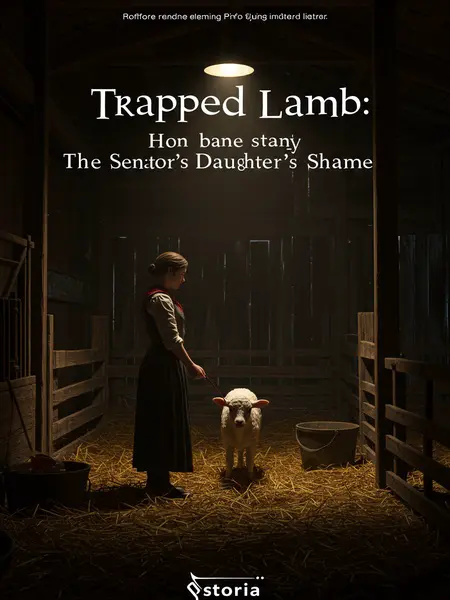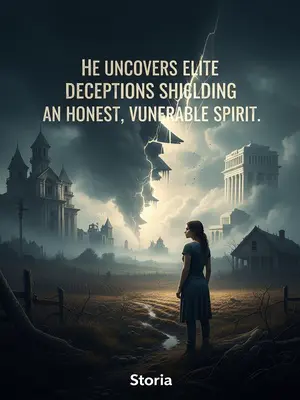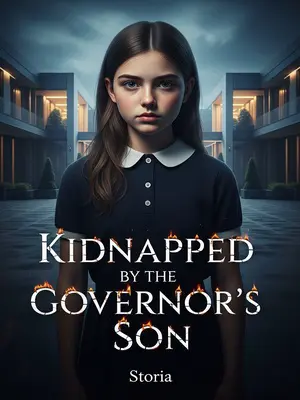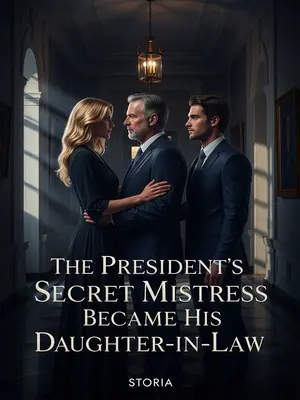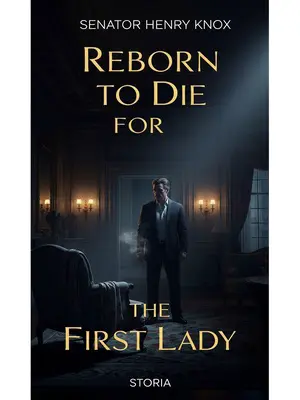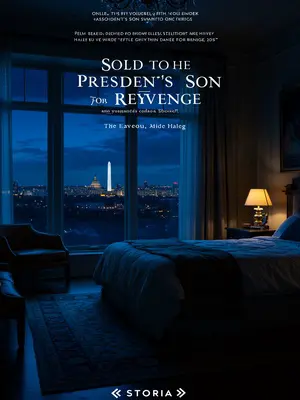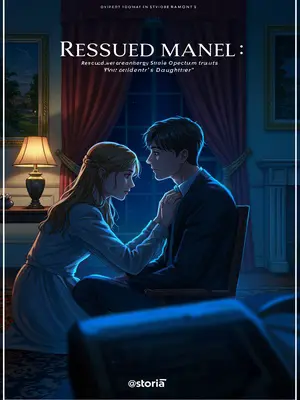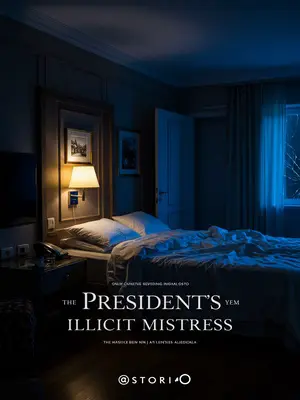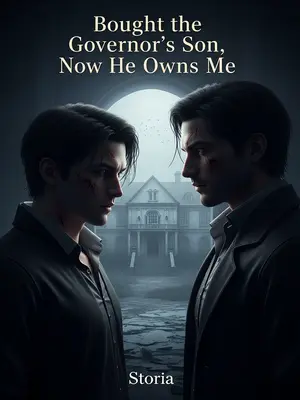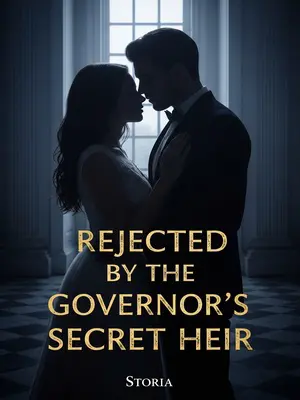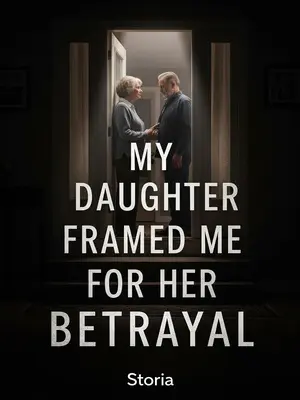Chapter 1: Cast Out Into the Night
My mother was once the daughter of a prominent senator in the United States.
Growing up, I’d hear stories about my grandfather—the way he’d stride up the marble steps of Capitol Hill, always in a crisp suit, his voice booming out of the TV like he owned the whole country. It always seemed like a world far away from the dusty, endless plains I knew—a place where nothing bad could ever happen. Sometimes, I wondered if anyone in those old news interviews ever imagined where his daughter had ended up.
During the chaos of war, a group of militia from the Plains captured her and dragged her out to a remote ranch, locking her in a livestock pen.
I can still picture that ranch: miles from the nearest paved road, tucked behind barbed wire and endless rolling fields. The pen stank of manure and rust, the boards warped and gray from years of windstorms. An old John Deere tractor sat half-buried in weeds nearby, its paint peeling, tires flat. Every night, coyotes would howl at the moon. No one ever came looking. The only voices we heard belonged to the men who ran the place—their boots heavy on the dirt, their laughter sharp as broken glass.
Every day, different men stomped on her dignity.
She was tormented until she became confused and unstable, calling out every day, "Dad, please save me..." But all she got in return was even more brutal humiliation from the men who held her captive.
I remember the sound of her voice—sometimes cracked and hoarse, sometimes just a whisper. Some days, she’d call for her father as if she still believed he could walk through the barbed wire and rescue her. Those were the days I hated most, because I wanted to believe it too.
When I was eight years old, she used all her strength to throw me out of the pen.
"Get out!"
It was a dark, windy night. In a daze, I was picked up by someone and then tossed out hard.
The prairie wind howled, slamming through the wooden boards and rattling the pen's tin roof. I landed face-first in the brittle grass, the chill biting through my thin shirt. My limbs trembled as I tried to sit up, the ground gritty against my knees.
"Ow..." I woke up from the pain, propped myself up with my skinny arms, and saw my usually dazed mother standing coldly at the edge of the pen, her face pale as a ghost in the moonlight.
Her hair, tangled and streaked with dust, blew around her shoulders. The moonlight caught on her cheekbones, sharpening her features, making her look almost like a statue—a statue chipped by years of weather and sorrow. I sucked in a shaky breath, afraid to move.
I was born able to see in the dark, but she had long since gone blind.
I instinctively walked toward her.
Something inside me always believed if I could just touch her, she’d remember who I was. That if I said her name, or mine, she might turn back into the mother who used to sing me lullabies. I was wrong, but hope is stubborn that way.
"Mom..."
"Get out!" Her hands gripped the fence tightly. "Get as far away from here as you can. Don’t come back here, you hear me? Don’t make me look at you again."
Her voice sliced through the night. I flinched, my feet stumbling to a stop. I wanted to run to her, to cling to her skirt like I did when I was little, but my legs wouldn’t move. I was too scared she’d really mean it this time. She sounded like someone else, her words full of acid. The metal fence rattled under her grip. For a moment, I thought she might leap over it and chase me away herself.
After saying that, she groped her way back into the flock, the iron shackle on her ankle clanking loudly.
That sound haunted me—the heavy, hopeless drag. It echoed even after she disappeared into the shadows, the sheep bleating in alarm. My hands went numb from the cold.
I stood dumbly outside the pen, not daring to climb back in. I was afraid she would hate me even more.
I had no father, nothing at all—I only had my mother.
My stomach twisted. I pressed my back against the fence, staring at the stars above, trying not to cry. Sometimes the sky out there looked so big it could swallow all your pain, but that night it just made me feel smaller.
I squatted down in a corner outside the pen, quietly inching toward it.
Every inch was a risk. The dry grass crackled beneath me. I tried to breathe quietly, hoping she wouldn’t hear, but every breath felt too loud in the empty dark.
"Get out!" Mom seemed to sense I hadn't left and shouted at me.
Her voice cracked, more brittle than before. I froze, arms around my knees, holding myself together as best I could.
"Why don't you just die? Even hearing you breathe disgusts me!"
Frightened, I hugged myself tightly. My teeth chattered, but I didn’t know if it was from the cold or what she said.
The words stung, sharp as a slap. I’d heard worse, but not from her—not like this. I curled tighter, wishing I could disappear, wishing I could stop existing just to make her pain go away.
Most of the time, Mom wasn’t like this. In her confused state, she would secretly hide me under a ewe so I could drink milk, and she always gave me the clean dinner roll to eat first.
On those days, she’d whisper old stories about senators and summer picnics, her hands gentle as she brushed straw from my hair. She’d tuck the softest roll into my hand, urging me to eat, even if it meant she went hungry.
But every month, there were always a few days when she would suddenly become fierce and terrifying, just like tonight.
But never as fierce as tonight.
She probably sensed I was still there, and actually threw clumps of manure at me.
"Get out!"
Manure splattered on my shoes, the stench burning my nose. She was relentless—throwing whatever she could grab. The sound of her shackled foot dragging was louder than her voice.
"Fine, if you won’t leave, then I’ll die... that way I won’t feel you anymore..."
Saying that, she actually tried to run herself into the concrete block.
She stumbled, half-tripping over her chain, heading straight for the edge of the pen where the concrete was chipped and jagged. My heart leapt into my throat.
I hurriedly stood up. "I’ll go... I’ll go right away..."
My voice was barely more than a squeak. I backed away, scraping my palms as I scrambled to my feet. I tried not to look at her face—afraid I’d see only hate, not the mother I remembered.
Mom can’t die. If she dies, then I really have nothing left.
People out here say, as long as you trap the ewe, the lamb can’t escape.
I am that lamb.
I hugged myself tighter, remembering the way the ranchers talked. They liked their sayings, their rough logic. I was just something for them to keep or throw away.
I originally wanted to stay in the corner and wait until Mom became the other Mom again before going back to keep her company.
But she wouldn’t let me stay near the pen.
No matter where I hid, she could always find me by sound, staring at me with those blind eyes on her pale face.
She’d turn her head, somehow knowing exactly where I was—even if I held my breath. Sometimes it felt like she could smell my fear.
As long as I didn’t leave, she would try to run into the concrete block.
In the end, I left.
I thought I’d go a bit farther and come back in a couple of days to see her.
To see if she had changed back.
The prairie is vast, and the winter wind is especially cold. Besides the livestock pen, I didn’t know where else could be my home.
The wind would whip through the cracks in my shoes, stinging my toes. I wandered, shivering, my breath steaming in the air. Each step felt heavier, but I kept looking back, hoping to see her—hoping she’d call for me again.
